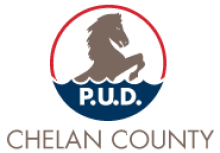The Internet is More Important than Broadband
I encourage readers to visit Doc Searls post "Broadband vs. Internet" for a discussion about things that matter regarding the future of Internet access for most Americans.
The Internet is no more capable than the infrastructures that carry it. Here in the U.S. most of the infrastructures that carry the Internet to our homes are owned by telephone and cable companies. Those companies are not only in a position to limit use of the Internet for purposes other than those they favor, but to reduce the Net itself to something less, called “broadband.” In fact, they’ve been working hard on both.There is a difference between the Internet and "broadband." Broadband is a connection that is always on and tends to be somewhat faster than the dial-up speeds of 56kbps. Broadband could connect you to anything... could be the Internet or to an AOL like service where some company decides what you can see, who you can talk to, and the rules for doing anything. The Internet is something different. It is anarchic, in the textbook definitional sense of being leaderless. It is a commons. As Doc says,
The Internet’s protocols are NEA:Because no one owns it, few promote it or defend. Sure, major companies promote their connections to it (and when you connect to it, you are part of it) but they are promoting the broadband connection. And the biggest ones (Comcast, AT&T, Verizon, Time Warner Cable, etc) will do anything to increase the profits they make by being one of the few means of connecting to the Internet -- including charging much more and limiting what people can do over their connection, etc. This is one reason the connections from major corporations are so heavily tilted toward download speeds -- they want consumers to consume content. Just about every community network built in the last 3-4 years offers symmetrical connections by contrast.
- Nobody owns them.*
- Everybody can use them, and
- Anybody can improve them.
Last I heard, the fastest cable offering in the upstream direction was 12Mbps. Cox, our cable provider in Santa Barbara, gives us about 25Mbps down, but only 4Mbps up. Last time I talked to them (in June 2009), their plan was to deliver up to 100Mbps down eventually, but still only about 5Mbps up.



